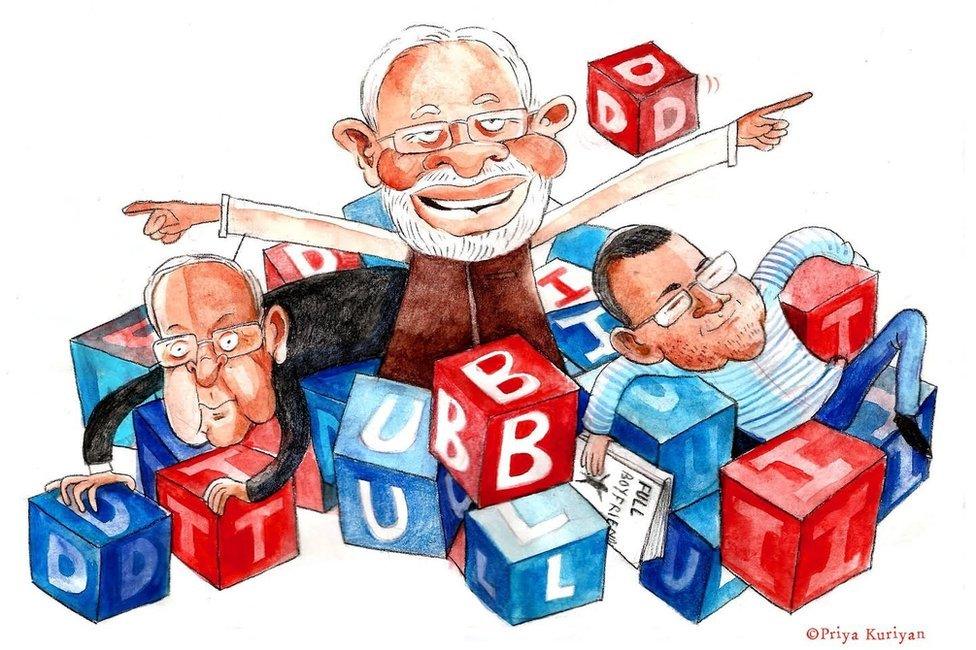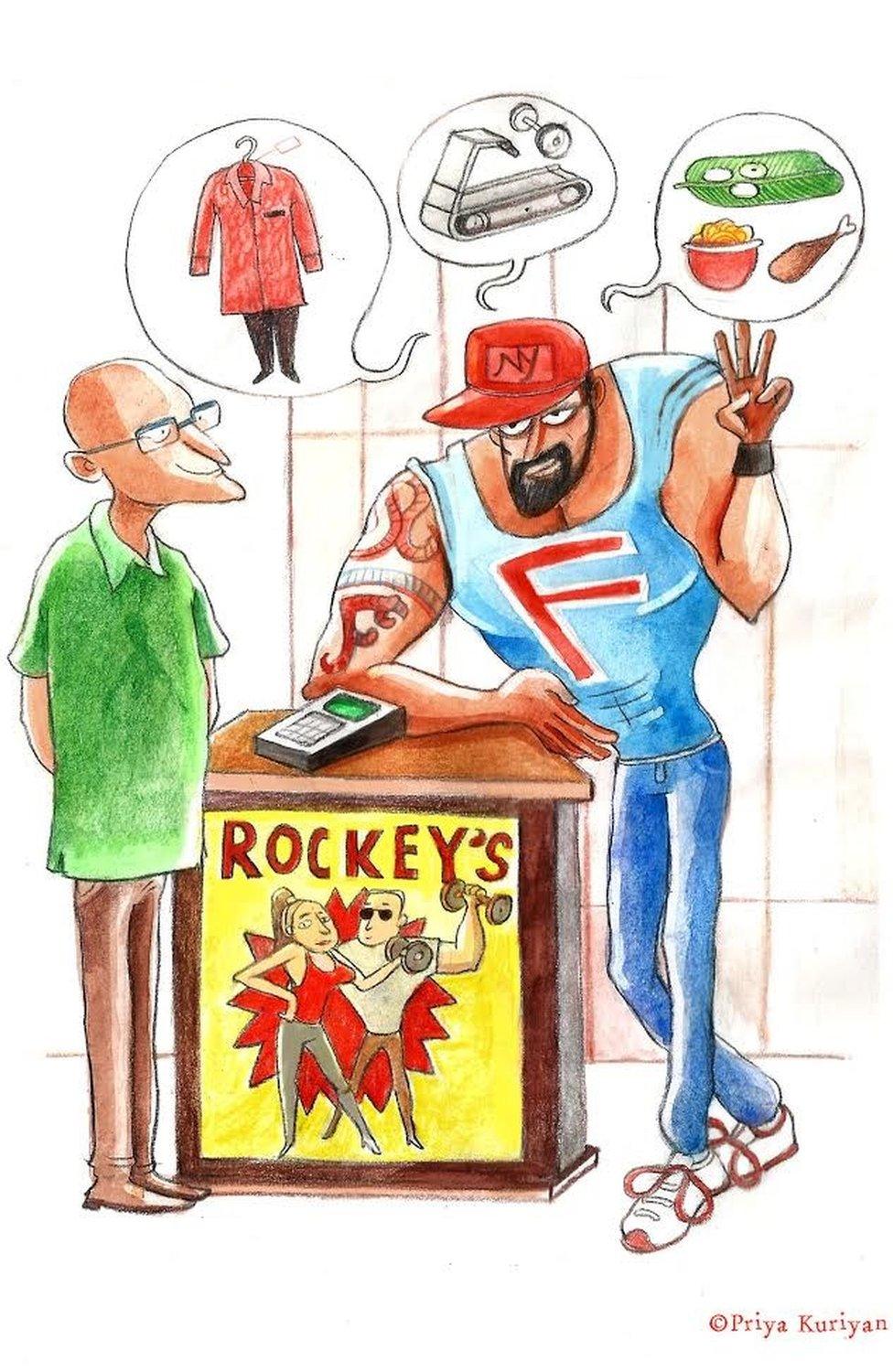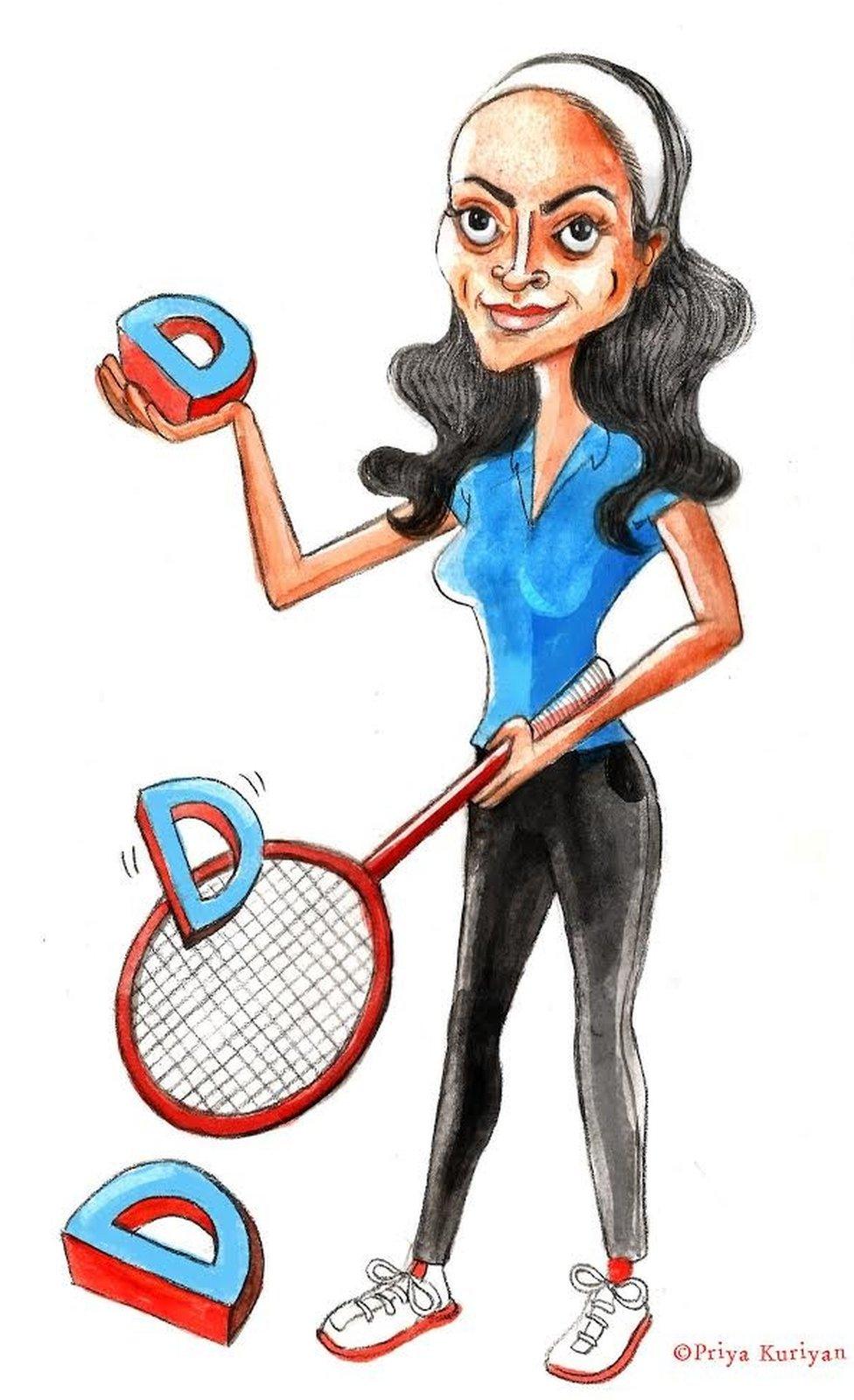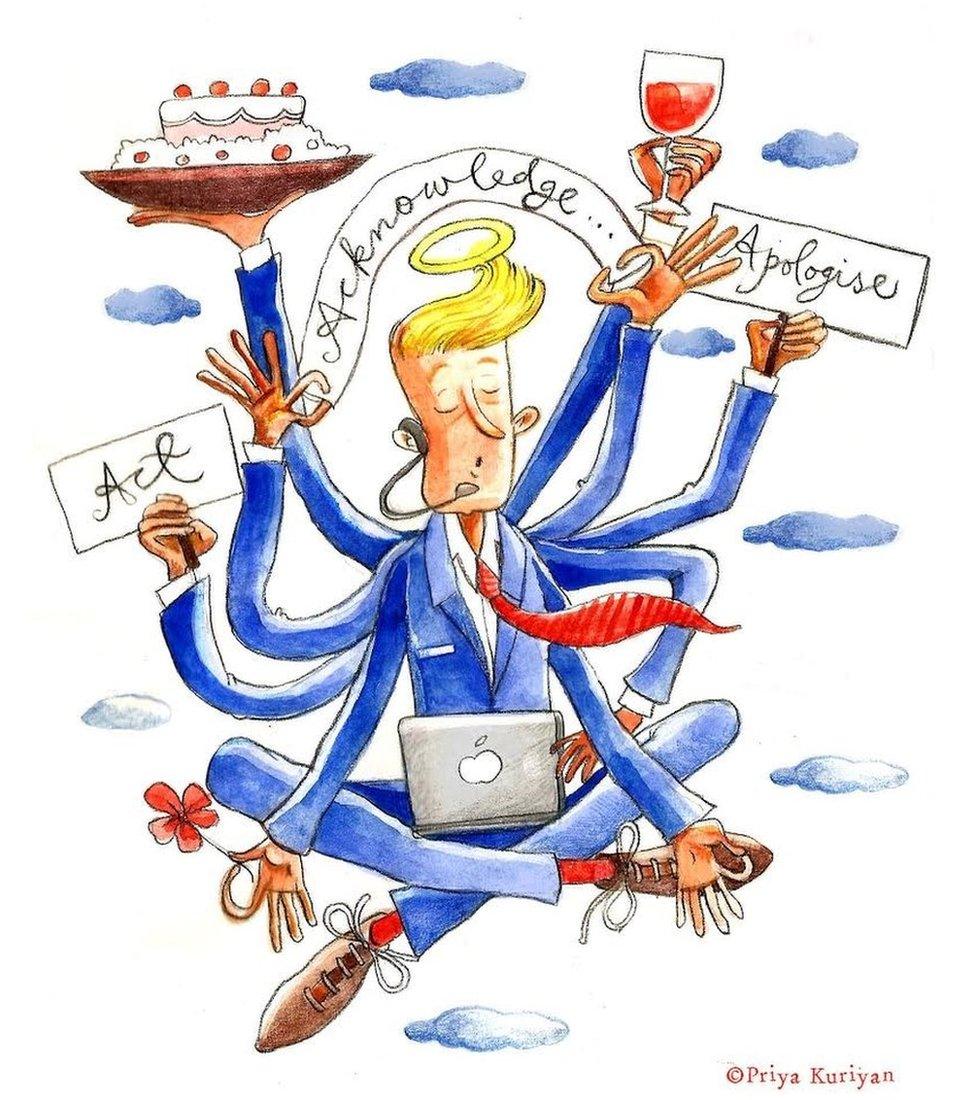India's strange obsession with 'alphabet soup'
- Published

The last few years have witnessed the birth of a curious phenomenon in India, perhaps a sign of religion loosening its grip on a modern secularised middle-class.
Earlier, when an Indian wanted personal advice on life matters - she looked to gurus and astrology. This, in recent times, has been replaced with the English alphabet.
India has more than 20 listed major languages but it is only English which has been bestowed with this honour and whose every letter can be a potential guide to life.
My conjecture is that this has come from management speak. For example, an American restaurant manager will say: "In the restaurant business years ago, I was taught the three As: acknowledge, apologise, act."
Sky is the limit
This obsession with the alphabet is all-pervasive; everyone from the little man on the street to politicians has a pet letter that they split into triple alliteration.
The making of this instant Bible is a wholly arbitrary exercise - zero in on any letter between A and Z, then force it to cough up a minimum of three alliterations.
It can go up from here - it can be five, or seven: the sky is the limit. But the minimum is three. Once you've done this, life becomes much easier.
I recently went to a store selling gym equipment to inquire about buying an exer-cycle. The owner sat glowing behind the counter, his t-shirt sleeves rolled up, his biceps bulging like a buffalo's full udder.
I said to the man: "I can see you've been doing your body-building in here."

He said: "Why not, just like a halwai [sweet vendor] ends up eating his own sweets, I end up exercising in my gym store."
Then, apropos of nothing, he outlined his life's success mantra for me: "Food, fashion and fitness."
He was acting out his life according to the three Fs. Two Fs were already in existence: the store we were in was "Fitness", downstairs he had another shop selling readymade clothes - "fashion". He whispered he was working on the third "F" - food. A "multi-cuisine restaurant" with a South Indian, Chinese and Mughlai menu was in the pipeline. His life was set.
Leading from the front
Indians cannot have enough of this alphabet soup.
Every commentator and public figure doles out a letter combo in a speech or a column, only to be asked for yet another. It's like Oliver Twist: "Please, sir, I want some more."
When it comes to single alphabet combos, Prime Minister Narendra Modi leads from the front.
Two years ago, it was the three Ds of national success: "Demographic dividend, democracy and demand for goods and services."
Soon after, President Pranab Mukherjee, addressing both houses of parliament, spoke of building on "the 3Ds of democracy, demographic and demand", and added to it five terrific Ts, riding on the strengths of which would help "revive Brand India": "Tradition, talent, tourism, trade and technology."
India's film stars also regularly take to Facebook to share their alphabet mantras for success.

Deepika Padukone, the reigning queen of Bollywood, recently seen with Vin Diesel in The Return of Xander Cage, posted this for the benefit of her legion of fans: "When I was growing up my father said to me, 'To be the best, always remember the three D's - Discipline, Dedication and Determination'." Total number of "likes": 142K.
India's No.1 paperback writer, Chetan Bhagat, recently wrote an op-ed on India's rupee ban for a national broadsheet.
It was headlined, "The 3 New I's of Indian Politics." The three inane I's are: "Intention, Initiative and Ideas."
Even gurus, not wanting to be left behind, have adapted to changing times. Sri Sri Ravi Shankar tweeted the following three Ps to his followers: "Perseverance, patience and possibility."
Among other things, this has led to an intense debate among Indian grammarians about the use of the apostrophe between the chosen key letter and the plural-designating "s" that proceeds it.
As always happens, when there's plenty of something, a pioneer emerges who sets the bar higher for everybody who follows.
Fabulous 14
Naina Dayal, a lecturer in Indian history at St. Stephen's College, Delhi, writes about a University Grants Commission "Orientation Programme" that she attended a little while back: "A former governor spoke to us at length about 14 Cs that we must cherish and impart to our students - confidence, courage, credibility, capability, compassion, concentration, creativity, co-ordination, communication, competence, co-relation, character, culture and commitment."
When the rest of the country was stuck at three-letter alliterations, this ambitious gentleman - the governor - went where no man had gone before: the fabulous 14.

The trouble with this relentless alphabetising is that there are so many variations possible on a theme (even though the English alphabet is finite), that no one really remembers the mantra after the moment of its utterance has passed.
As a writer, to me, all letters of the alphabet family are equal.
They are my sons, daughters and transgenders. To my mind, it would be terribly unfair on my behalf if I were to throw all my weight around one single letter and the words it subsequently reproduces at random.
The writer is the editor of House Spirit: Drinking in India, published by Speaking Tiger